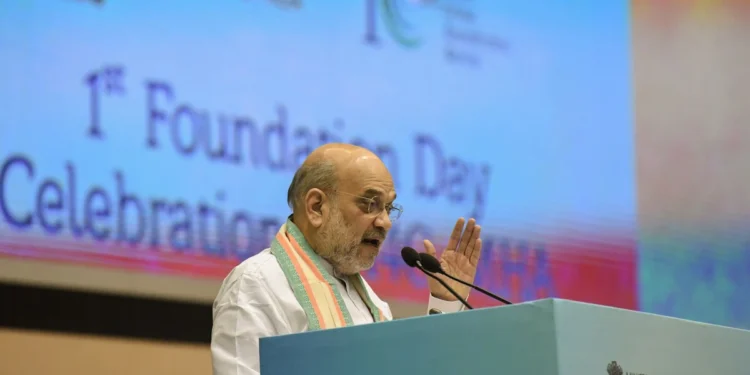Lagatar24 Desk
New Delhi: In a major move aimed at bolstering India’s cybersecurity infrastructure, Home Minister Amit Shah has announced several key initiatives, including the training of 5,000 ‘cyber commandos’ and the creation of a national registry of cybercrime suspects. Speaking at the first foundation day of the Indian Cybercrime Coordination Centre (I4C) in New Delhi, Mr. Shah highlighted the critical importance of cybersecurity in safeguarding national security and combating growing cyber threats.
Among the initiatives revealed was the development of a web-based data registry and a cybercrime information-sharing portal designed to streamline efforts to combat cybercrimes, which increasingly transcend borders. Amit Shah emphasized that cybercrimes have “no boundaries” and asserted that protecting the nation’s digital landscape is an integral part of national security.
New Cybercrime Mitigation Initiatives
The Cyber Fraud Mitigation Centre (CFMC) was also announced during the event, which will bring together representatives from major banks, financial intermediaries, payment aggregators, telecom service providers, and law enforcement agencies from across states and Union Territories. This multi-agency task force will focus on immediate response actions and facilitate cooperation to tackle online financial crimes. Mr. Shah noted that the CFMC would serve as a prime example of “cooperative federalism” in the realm of law enforcement.
In addition, seven joint cyber coordination teams have been established in key regions, including Mewat, Jamtara, Ahmedabad, Hyderabad, Chandigarh, Visakhapatnam, and Guwahati. These teams have already delivered positive results in curbing cybercrimes. As part of a broader public outreach initiative, the I4C has launched the CyberDost campaign, which aims to raise awareness of cyber threats through social media.
Cyber Commandos and National Registry
One of the key initiatives announced by the Home Minister is the establishment of a ‘Cyber Commandos’ wing, comprising 5,000 specially trained personnel from states, Union Territories, and central agencies like the CBI. These commandos will be trained to counter growing threats in the cyber domain and assist in securing India’s digital landscape.
Another significant measure is the creation of a national registry of cybercrime suspects, based on data from the National Cybercrime Reporting Portal (NCRP). This registry, developed in collaboration with banks and financial intermediaries, will strengthen the fraud risk management systems of the financial ecosystem in India.
Digital Security: A National Priority
India, which accounts for 46% of global digital transactions, is increasingly a target for cybercriminals. To address this, the I4C has issued over 600 advisories, blocked various malicious websites, and suspended social media accounts and mobile applications used by cybercriminals. The Samanvay Platform, a web-based module, will further support these efforts by acting as a data repository for cybercrimes, facilitating data sharing, crime mapping, and analytics.
As Amit Shah stated during the event, achieving the goal of securing India’s digital landscape requires a collective and coordinated strategy, with all stakeholders moving in the same direction.
By introducing these measures, the government aims to not only protect India’s digital space but also set an example of coordinated federalism in the battle against cybercrime.







